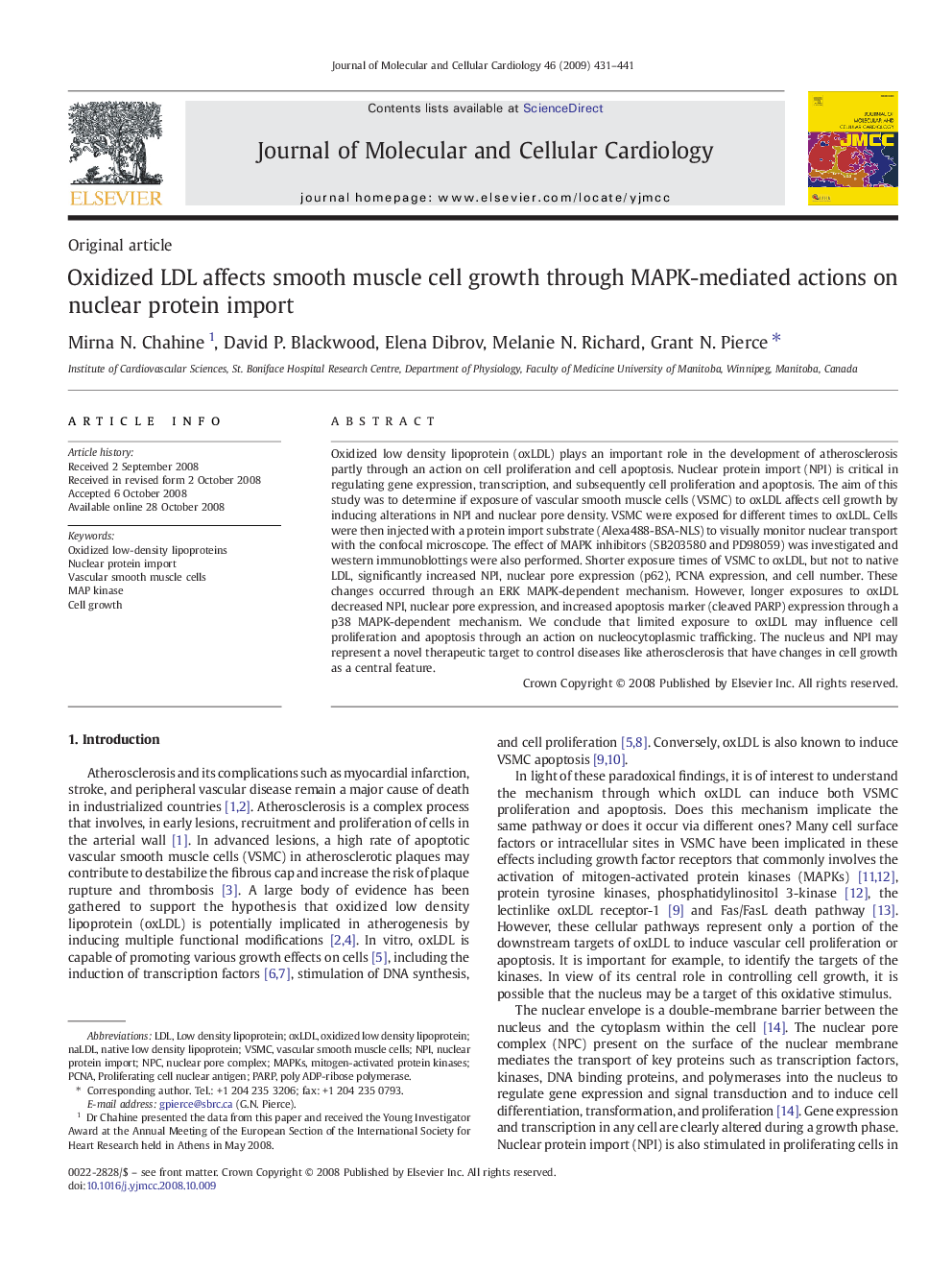| Article ID | Journal | Published Year | Pages | File Type |
|---|---|---|---|---|
| 2191436 | Journal of Molecular and Cellular Cardiology | 2009 | 11 Pages |
Oxidized low density lipoprotein (oxLDL) plays an important role in the development of atherosclerosis partly through an action on cell proliferation and cell apoptosis. Nuclear protein import (NPI) is critical in regulating gene expression, transcription, and subsequently cell proliferation and apoptosis. The aim of this study was to determine if exposure of vascular smooth muscle cells (VSMC) to oxLDL affects cell growth by inducing alterations in NPI and nuclear pore density. VSMC were exposed for different times to oxLDL. Cells were then injected with a protein import substrate (Alexa488-BSA-NLS) to visually monitor nuclear transport with the confocal microscope. The effect of MAPK inhibitors (SB203580 and PD98059) was investigated and western immunoblottings were also performed. Shorter exposure times of VSMC to oxLDL, but not to native LDL, significantly increased NPI, nuclear pore expression (p62), PCNA expression, and cell number. These changes occurred through an ERK MAPK-dependent mechanism. However, longer exposures to oxLDL decreased NPI, nuclear pore expression, and increased apoptosis marker (cleaved PARP) expression through a p38 MAPK-dependent mechanism. We conclude that limited exposure to oxLDL may influence cell proliferation and apoptosis through an action on nucleocytoplasmic trafficking. The nucleus and NPI may represent a novel therapeutic target to control diseases like atherosclerosis that have changes in cell growth as a central feature.
